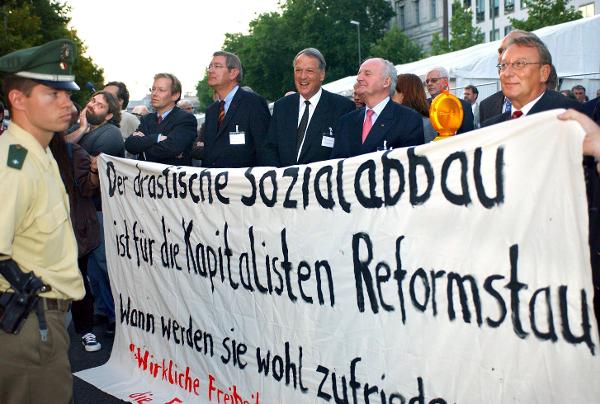Source

Source: picture-alliance / dpa (c) dpa – Fotoreport
The Schröder administration faced a difficult balancing act with Agenda 2010: while advocates of a neoliberal transformation of society (including business leaders, the FDP, and most CDU/CSU members) felt that the reforms didn’t go far enough, the traditional supporters of the social welfare state (trade unions and many left-wing members of the SPD), regarded the reforms as unjust and perceived them as an affront. On September 22, 2003, the Federation of German Industries [Bundesverband der deutschen Industrie or BDI] hosted a “reform conference” for about 1,000 participants in Berlin. The federation spoke out in favor of accelerating the restructuring process. Its reform concept, entitled “For a More Attractive Germany,” included the following proposals: state concentration on core tasks, the consolidation of financial policy, a growth-oriented tax policy, greater personal responsibility in the social welfare system, the deregulation of the labor market, investment in Germany’s future viability, the reduction of bureaucracy, and a “reform convention” for Germany. When BDI conference participants proceeded to the House of the German Economy, they were confronted by demonstrators who held up a banner reading: “Drastic cuts in social welfare are nothing more than a reform logjam for capitalists – when will they be satisfied?” The photograph shows members of the BDI standing behind the demonstrators’ banner.

Source: picture-alliance / dpa (c) dpa – Fotoreport